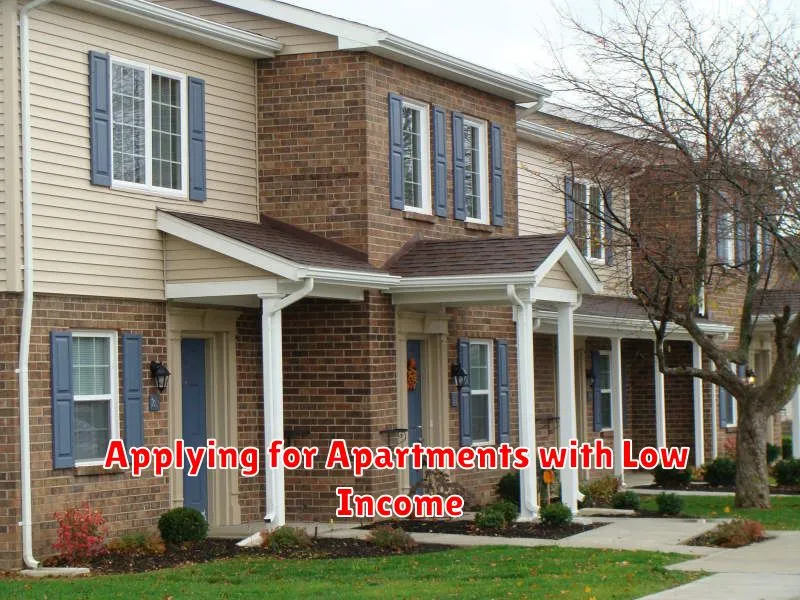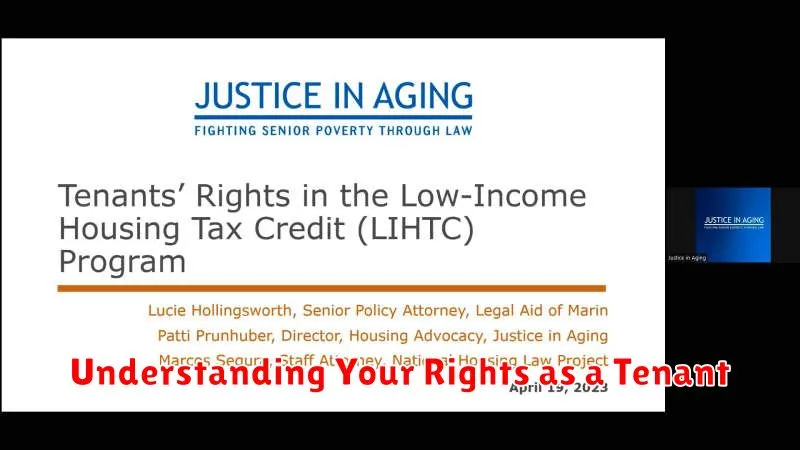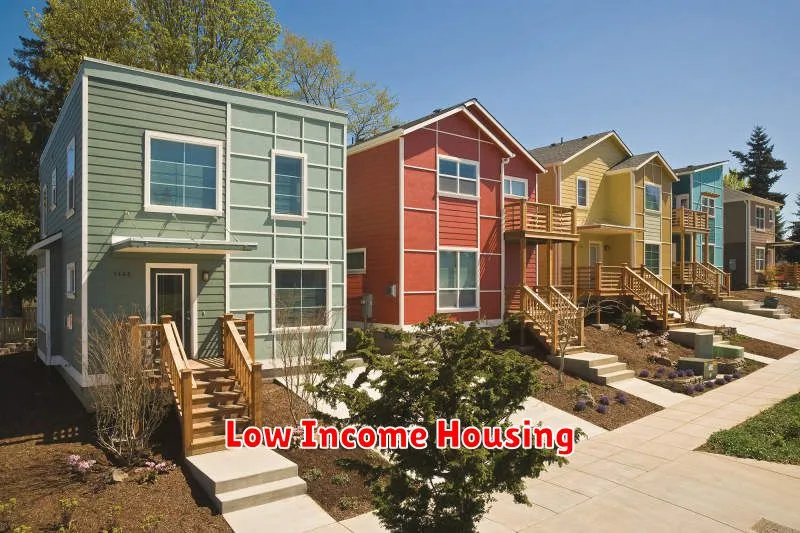Finding an apartment can be a daunting task, but it can be even more challenging if you have low income. With the rising cost of living, it can seem impossible to secure a decent place to live without breaking the bank. However, there are strategies and resources available to help you rent an apartment even with limited funds. This article will guide you through the process of finding a suitable apartment, negotiating a reasonable rent, and accessing financial assistance to make your dream of renting a comfortable apartment a reality. So, if you’re struggling to make ends meet but still want to live comfortably, read on to learn how to rent an apartment with low income.
Assessing Your Budget
Before you start looking at apartments, it’s important to assess your budget. This will help you narrow down your search to apartments that are within your price range.
Start by figuring out your monthly income. This is your take-home pay after taxes and other deductions. Then, subtract your monthly expenses, such as food, transportation, utilities, and debt payments.
The amount of money you have left over after subtracting your expenses is your monthly budget. This is the amount of money you can afford to spend on rent each month.
A good rule of thumb is to spend no more than 30% of your monthly income on rent. This will help you ensure that you have enough money left over to cover other expenses and to save for your future.
Once you know how much you can afford to spend on rent, you can start looking at apartments. There are many resources available to help you find affordable apartments, such as online rental listings, local newspapers, and real estate agents.
Finding Affordable Housing Programs
Finding affordable housing can be a challenge, especially if you’re on a low income. But there are programs available to help, you just need to know where to look.
One place to start is with your local Housing Authority. These agencies administer government-funded programs that provide rental assistance to low-income families. They may offer programs like Section 8, which helps you pay a portion of your rent, or Public Housing, which provides low-rent apartments directly.
Another option is to look into non-profit organizations in your area. Many organizations work to provide affordable housing options to low-income individuals and families. They may offer rental assistance, counseling services, or even help you find a place to live.
You can also check with your local government agencies. Some states and cities have programs that offer rental assistance or subsidies to low-income residents.
Lastly, don’t forget to explore online resources. Several websites, like HUD.gov and National Low Income Housing Coalition, provide information on affordable housing programs and resources.
By exploring these resources, you can increase your chances of finding an affordable apartment that fits your budget and meets your needs.
Exploring Government Assistance
If you’re struggling to afford rent due to a low income, several government assistance programs can help. These programs offer financial aid, housing vouchers, and other resources to make renting more manageable. Some common programs include:
Section 8 Housing Choice Voucher Program: This program provides rental assistance to low-income families, the elderly, and people with disabilities. You receive a voucher that can be used toward rent at participating landlords. The amount of assistance depends on your income and local housing costs.
Public Housing: Public housing offers affordable rental units owned and operated by the government. These units are typically located in specific areas and are reserved for low-income households.
Emergency Rental Assistance (ERA): This program provides financial aid to renters who are behind on rent due to the COVID-19 pandemic. The amount of assistance is dependent on factors like household income and the number of dependents.
State and Local Programs: In addition to federal programs, various state and local initiatives may provide rental assistance. These programs could be tailored to specific needs within each region.
To explore these programs, you can visit the websites of the U.S. Department of Housing and Urban Development (HUD), your state’s housing authority, or your local government. Additionally, contacting your local housing agency or a housing counseling organization can provide valuable information and guidance.
Looking for Subsidized Housing
If you’re struggling to afford rent, you may be eligible for subsidized housing. Subsidized housing is a government program that helps low-income families, seniors, and people with disabilities afford housing. The program provides rent subsidies, which help pay a portion of the rent. This can make a big difference in your monthly budget, freeing up money for other necessities.
There are a few different types of subsidized housing programs available. Some common types include:
- Public Housing: This is a government-owned and operated program that offers affordable housing to low-income families. The rent is typically based on a percentage of your income.
- Housing Choice Voucher Program (Section 8): This program provides vouchers that can be used to rent a private apartment. The landlord accepts the voucher, and you pay a portion of the rent that’s based on your income. The voucher covers the rest.
- Project-Based Rental Assistance: This program provides subsidies to landlords for specific buildings, making units affordable for low-income renters.
To find out if you qualify for subsidized housing, contact your local public housing authority or housing counseling agency. You will need to provide information about your income, family size, and other factors.
Considering Housing Vouchers
Housing vouchers, also known as Section 8 vouchers, are a government program that helps low-income families afford housing. If you qualify, you can use a housing voucher to rent an apartment that meets certain requirements, and the government will pay a portion of your rent directly to your landlord.
To qualify for a housing voucher, you must meet certain income requirements. You’ll also need to pass a criminal background check and provide documentation of your income and family size. The amount of assistance you’ll receive will depend on your income and the rent of the apartment you choose.
One benefit of using a housing voucher is that it can help you find a better apartment than you might be able to afford on your own. Landlords are often more likely to rent to tenants with housing vouchers because the government guarantees rent payments. This can give you access to a wider range of apartment options.
There are also some drawbacks to using a housing voucher. For example, you may have to wait a long time to receive a voucher. You’ll also need to abide by certain rules and regulations, such as keeping the apartment clean and maintaining it in good condition.
If you’re considering using a housing voucher, it’s important to talk to a housing counselor. They can help you understand the program’s requirements and determine if it’s the right option for you.
Negotiating Rent and Deposits
You may think that negotiating rent and deposits is only for the wealthy, but the reality is that everyone can try! Landlords are often open to negotiating if it means getting a tenant in their property quickly. If you have a low income, here are a few things you can do to negotiate your rent and deposit:
Offer a longer lease. Most landlords prefer to have tenants stay for a longer period of time. Offering a longer lease can be an incentive for them to negotiate with you on rent and deposit.
Offer to pay a larger security deposit. This is a common tactic used by landlords to minimize the risk of a tenant damaging the property. If you can afford to pay a larger deposit, you may be able to negotiate a lower monthly rent.
Pay rent upfront. If you have the funds available, you can offer to pay several months of rent upfront. This shows the landlord that you are serious about renting the property and that you are financially stable.
Ask about concessions. Some landlords are willing to offer concessions, such as free rent for the first month or a free parking space. Be sure to ask about any concessions they might be willing to offer.
Be prepared to walk away. If you are not able to negotiate a rent and deposit that you are comfortable with, be prepared to walk away. There are other properties available, and you don’t want to settle for a place that is out of your budget.
Finding Roommates
One of the most effective ways to reduce your monthly rent is to find roommates. Sharing an apartment with others will split the cost of rent, utilities, and other expenses. This can significantly lower your overall housing costs and make renting more affordable, especially on a low income.
When searching for roommates, consider the following factors:
- Budget: Discuss your budget with potential roommates to ensure you can all comfortably afford the rent and other expenses.
- Lifestyle: Consider your lifestyle and preferences, such as preferred sleeping hours, cleanliness, and entertainment habits. Find roommates who have similar lifestyles to avoid potential conflicts.
- Communication: Effective communication is key for a harmonious living situation. Look for roommates who are open to talking through any issues and finding solutions together.
Platforms like Facebook groups, online roommate matching services, and even Craigslist can help you find potential roommates. Remember to screen potential roommates carefully to ensure compatibility and reliability.
Searching for Affordable Neighborhoods
When you’re looking to rent an apartment on a low income, finding an affordable neighborhood is crucial. Location can significantly impact your budget. Consider these strategies:
Explore Less Popular Areas: While trendy neighborhoods might seem appealing, they often come with higher rent prices. Explore areas slightly outside the city center or those less known for their nightlife or entertainment. These areas might offer more affordable options without compromising on quality or convenience.
Utilize Online Resources: Websites and apps dedicated to apartment rentals, such as Apartments.com, Zillow, and Trulia, allow you to filter by price and location. You can also use online tools like Rent.com’s affordability calculator to see how rent fits into your budget.
Consider Public Transportation Access: Living closer to public transportation hubs can help you save on car expenses. If your work or daily errands require frequent commutes, prioritize neighborhoods with good bus or train connections.
Engage with Local Communities: Online forums and social media groups dedicated to specific neighborhoods can provide insights into local rent prices and community living experiences. You can also ask friends, family, or colleagues for recommendations based on their knowledge of the area.
Utilizing Online Resources

The internet can be a powerful tool for finding affordable housing options. There are numerous websites dedicated to helping people with low income find rental properties. Some popular platforms include:
- Apartments.com: This website allows you to search for apartments based on your budget, location, and desired features. You can also filter results by pet policies, amenities, and more.
- Zillow: Similar to Apartments.com, Zillow provides a comprehensive database of rental listings. It also offers tools to estimate rent prices and track property value.
- Craigslist: While Craigslist may not be the most professional option, it can be a good source for finding affordable apartments, especially in smaller towns or cities.
- Facebook Marketplace: Many landlords and property managers advertise available units on Facebook Marketplace. This is a good option for finding off-market listings and direct deals.
Beyond these general search platforms, consider exploring websites specifically catering to low-income housing options. These sites might include:
- HUD (Housing and Urban Development): The HUD website provides information on housing assistance programs, including Section 8 vouchers and public housing.
- Nonprofit Housing Organizations: Local non-profit organizations often offer resources and assistance for affordable housing, including rental listings and counseling services.
Remember to be cautious when using online resources, as scams are prevalent. Always verify the legitimacy of any listings and communicate directly with landlords or property managers through official channels.
Working with a Real Estate Agent
A real estate agent can be a valuable resource when you’re looking to rent an apartment, especially if you have low income. They have access to a wide range of listings and can help you find properties that fit your budget and needs. They can also help you negotiate with landlords and understand the lease terms.
Here are some benefits of working with a real estate agent:
- Access to more listings: Real estate agents have access to a wider range of listings, including those that may not be publicly advertised.
- Expert negotiation skills: They can help you negotiate a better lease price and terms with the landlord.
- Local market knowledge: They have in-depth knowledge of the local rental market, including average rent prices and desirable neighborhoods.
- Guidance with the application process: They can help you fill out rental applications and gather the necessary documentation.
When choosing a real estate agent, be sure to find one who specializes in rentals and who has experience working with low-income renters. You can ask for referrals from friends, family, or your local community center.
Applying for Apartments with Low Income

Securing an apartment when you’re on a limited income can be challenging, but it’s not impossible. You can increase your chances of getting approved by taking specific steps and understanding the process. Here’s how you can successfully apply for apartments with low income:
1. Know your budget: First, determine how much rent you can afford. Consider all your expenses, including utilities, groceries, transportation, and debt payments. A general rule of thumb is to spend no more than 30% of your income on housing.
2. Explore affordable housing options: Look into government-assisted housing programs, such as Section 8, public housing, or affordable housing developments. These programs offer rent subsidies or affordable units for low-income earners.
3. Find a reputable landlord: Research landlords and their properties to find those who cater to low-income renters. Look for good reviews and a history of fair practices.
4. Gather necessary documents: Be prepared to provide essential documents like:
- Proof of income (pay stubs, tax returns, etc.)
- Bank statements
- Rental history (if applicable)
- Credit report
- References from previous landlords
5. Be upfront about your situation: Be honest with the landlord about your income and financial situation. It’s better to be transparent than to try to hide information, which could lead to mistrust or denial.
6. Consider a co-signer: If you have a reliable friend or family member with good credit, they might be willing to co-sign the lease. This could help strengthen your application and increase your chances of approval.
7. Follow up: After submitting your application, follow up with the landlord regularly to check on its status. Being proactive shows you are serious about renting the property.
Remember, finding an apartment with low income might take time and effort. Be patient, persistent, and prepared to be flexible in your search. By understanding the process and taking proactive steps, you can increase your chances of finding a safe and affordable home.
Understanding Your Rights as a Tenant

Being a tenant comes with certain rights that are crucial to understand. These rights are designed to protect you, the renter, and ensure a fair and safe living environment. Here are some key rights that you should be aware of:
Right to a Safe and Habitable Living Space: Your landlord is legally obligated to provide you with a safe and habitable dwelling. This means that the apartment must be free from major health and safety hazards, such as leaking roofs, broken plumbing, faulty electrical wiring, or infestations.
Right to Privacy: Your landlord cannot enter your apartment without a valid reason and proper notice. They must provide you with a reasonable notice, usually 24 hours, unless there is an emergency situation like a fire or a threat to the building’s safety.
Right to Quiet Enjoyment: You have the right to enjoy your apartment in peace and quiet, without unreasonable disturbances from your neighbors or the landlord. This includes noise levels, property access, and maintaining a peaceful living environment.
Right to a Lease Agreement: Your lease agreement should be in writing and clearly outline the terms of your tenancy. It should include the rent amount, due date, lease period, and any other relevant clauses.
Right to Security Deposit Protection: Your landlord must hold your security deposit in a separate account and return it to you within a reasonable timeframe after you move out, minus deductions for any damages beyond normal wear and tear.
Right to Fair Treatment and Non-Discrimination: You have the right to be treated fairly and respectfully by your landlord. You cannot be discriminated against based on your race, religion, national origin, disability, or other protected characteristics.
Right to Legal Representation: If you have any issues with your landlord, you have the right to seek legal counsel and representation to protect your rights. A lawyer can help you understand the legal process and navigate any disputes with your landlord.
Knowing your rights as a tenant is crucial for ensuring a positive and safe renting experience. Familiarize yourself with your state’s tenant laws and resources to understand your full rights and responsibilities.
Preparing for the Application Process

Once you’ve found a few apartments that meet your needs and budget, it’s time to start the application process. This can feel daunting, especially if you have a low income. But there are a few things you can do to prepare and increase your chances of getting approved.
First, gather all the necessary documents. This includes your photo ID, Social Security card, proof of income (pay stubs, tax returns, etc.), and references. You may also need a credit report, though some landlords are willing to waive this requirement for applicants with low incomes.
Next, familiarize yourself with the landlord’s requirements. Read the lease agreement carefully and ask any questions you have. It’s also a good idea to check your credit score and make sure there are no errors that could be impacting your application.
Finally, be prepared to be honest and upfront about your financial situation. Many landlords are willing to work with renters who have low incomes, but they need to be aware of your financial circumstances so they can make an informed decision.
Moving and Settling In

Once you’ve secured an apartment, it’s time to move in and make it your own! This can be an exciting and overwhelming experience, but it’s also a crucial step in establishing yourself in your new home.
Start by planning your move. Depending on the distance and the amount of belongings you have, you can choose from different options: hiring a moving company, enlisting help from friends and family, or making multiple trips in your car. No matter the method, make sure to have a clear plan to avoid last-minute stress.
When you arrive at your new apartment, take the time to unpack, organize, and personalize your space. This can be a great way to make your apartment feel more like home. Remember to familiarize yourself with the building’s amenities, such as laundry facilities, parking, and common areas.
Moving can be a challenging but rewarding experience. By planning ahead and taking the time to settle in, you can create a comfortable and welcoming space for yourself.

